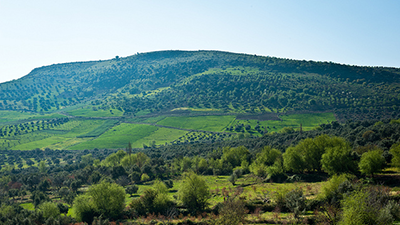Ibi is a small village on the Batéké Plateau in the Democratic Republic of Congo (DRC) – at first sight not the place that strikes one as a center for carbon finance. And yet, it is here that the DRC’s first Clean Development Mechanism (CDM) project is located - approved and registered under the Kyoto Protocol.
As part of the Ibi Batéké reforestation project, a private company founded and managed by local people from the Batéké Plateau, is reforesting over 4,200 hectares of degraded land, which will employ around 400 staff. In total, the reforestation project is expected to absorb 1.6 million tons of carbon dioxide by 2037. Thanks to the carbon revenue which comes back to the community, hundreds of children will get better education and health services.
“Ibi Batéké is a concrete example of the capacity of the private sector to help transform the national economy,” said Marie Francoise Marie-Nelly, Country Director for the World Bank in DRC and the Republic of Congo. “Given the suitable conditions, such initiatives can be scaled up, creating thousands of jobs while reducing the pressure on native ecosystems.”
At the Africa Carbon Forum 2011 held in Marrakesh, Morocco this week, more than 1,000 carbon experts, project developers, carbon buyers and sellers, government and private sector representatives from across the globe came together to learn more about projects like the one in Ibi and to explore new carbon finance opportunities in Africa.
Challenging Times for Carbon Markets
The forum is celebrating the 10 year anniversary of the Marrakesh Accords, signed in Marrakesh to establish the Kyoto Protocol. But it also comes during challenging times for carbon markets: slow progress in climate talks, lack of a clear regulatory future, stagnation of traded volumes, and the risk of a fragmentation of carbon markets. The World Bank’s State and Trends of the Carbon Market Report (pdf) states a total market value of $142 billion in 2010, down from $144 billion in 2009.

